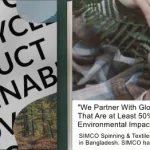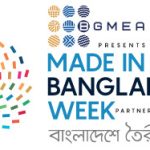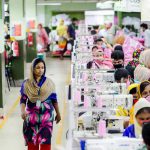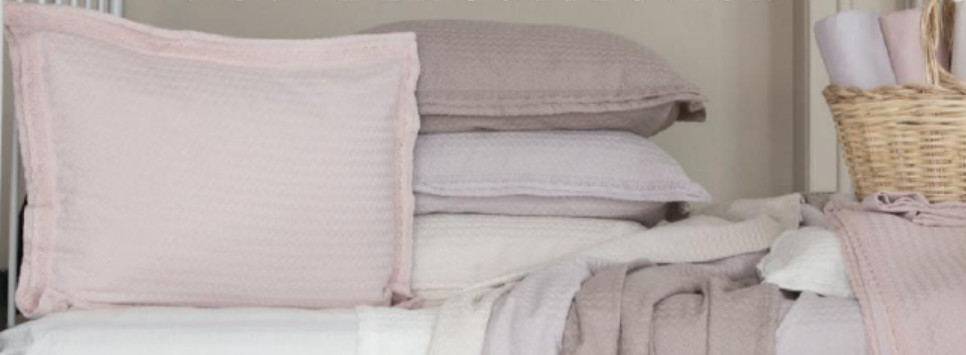 Last year the Bangladesh Terry Towel & Linen Manufacturers & Exporters’ Association (BTTLMEA) wanted the government to stop the export of cotton waste so that raw materials become available for production. Cotton waste is still being exported. It also wanted cash incentive to be increased to 16 percent so that Bangladeshi products can be competitive in the US market. There is however a proposal from the national committee under the finance ministry, that looks after revision of cash incentives, that a further three percent may be given for the US market. Presently there is a percent cash incentive for all exporters. Another basket exists that provides a further four percent incentive to small industries with an annual export not exceeding USD 3.5 million and which are single unit factories. BTTLMEA wanted a further eight percent, but there is only a recommendation for a further three percent for the US market which has not been gazetted as yet.
Last year the Bangladesh Terry Towel & Linen Manufacturers & Exporters’ Association (BTTLMEA) wanted the government to stop the export of cotton waste so that raw materials become available for production. Cotton waste is still being exported. It also wanted cash incentive to be increased to 16 percent so that Bangladeshi products can be competitive in the US market. There is however a proposal from the national committee under the finance ministry, that looks after revision of cash incentives, that a further three percent may be given for the US market. Presently there is a percent cash incentive for all exporters. Another basket exists that provides a further four percent incentive to small industries with an annual export not exceeding USD 3.5 million and which are single unit factories. BTTLMEA wanted a further eight percent, but there is only a recommendation for a further three percent for the US market which has not been gazetted as yet.
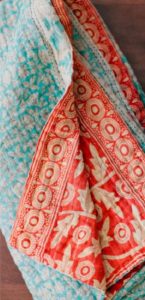 The biggest problem now is the crisis in yarn. The industry was founded basically in 1990 on the premise that cotton waste would be used to produce the yarn for home textiles. Today there are 105 mills with only three enjoying bonded warehouse facilities including Noman Group’s Terry Towel, ACS, which is a British investment venture in Bangladesh and another Bangladeshi company. These companies are at liberty to import (duty free) raw materials from the international market, be it yarn or chemicals for the purpose of producing goods that are for export only. The advantage here is that these companies can buy yarn at competitive international rates.
The biggest problem now is the crisis in yarn. The industry was founded basically in 1990 on the premise that cotton waste would be used to produce the yarn for home textiles. Today there are 105 mills with only three enjoying bonded warehouse facilities including Noman Group’s Terry Towel, ACS, which is a British investment venture in Bangladesh and another Bangladeshi company. These companies are at liberty to import (duty free) raw materials from the international market, be it yarn or chemicals for the purpose of producing goods that are for export only. The advantage here is that these companies can buy yarn at competitive international rates.
Since the export-oriented home textile and linen manufacturers have from the beginning been using yarn made from local cotton waste, there was no move towards getting bond facilities and that has become a major problem today. Now the availability of local yarn has reached crisis point. The industry uses primarily 10 single, 16 single and 20 single grade yarns to produce products that range from bed sheets, pillow cases, curtains, quilt covers, comforter, various types of sheets, etc. Terry items include all types of towels. All these yarns are produced by Bangladeshi spinners. Home textile mills use the open end variety yarn.
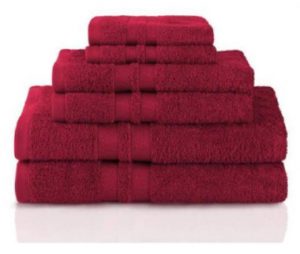 It is fortunate for the RMG sector of Bangladesh that denim export from Bangladesh has got a boost over the last three years and demand for local yarn (7 single, 8 single and 10 singles grade yarn) has increased. That means denim factories are using the same yarn counts to make their garments that Terry towel factories use to produce low to mid end towels in the country. The only difference is that for denim yarn, spinners may increase the percent age of virgin cotton from 60 to say 70 or 80 percent. While investment may increase by Tk 10 per kg, selling price increases by Tk 20 per kg.
It is fortunate for the RMG sector of Bangladesh that denim export from Bangladesh has got a boost over the last three years and demand for local yarn (7 single, 8 single and 10 singles grade yarn) has increased. That means denim factories are using the same yarn counts to make their garments that Terry towel factories use to produce low to mid end towels in the country. The only difference is that for denim yarn, spinners may increase the percent age of virgin cotton from 60 to say 70 or 80 percent. While investment may increase by Tk 10 per kg, selling price increases by Tk 20 per kg.
So, naturally, spinners are shying away from selling to terry towels/home textile mills in favour of denim factories. To put all this in perspective, spinners can sell towel yarn (count 10s) at USD 1.80 per kilo. While denim yarn at the same count fetches USD 2.20 per kilo. So naturally, spinners are selling the 10s yarn to denim factories.
On top of the yarn shortage, Bangladesh does not have a comparative price advantage in the US market over Pakistan. The Pakistani rupee exchange rate (USD 1= Rs 110) and the industry there is getting a cash incentive of 12 percent coupled with paying less duty to enter into the US market. On the contrary, in Bangladesh exchange rate stands stronger with Taka trading against the USD at 83:1 and enjoying an inferior 8 percent cash incentive (for SMEs). Then again Pakistan’s 10 single grade yarn price is approximately 12-15 percent cheaper than the price of same grade yarn available to Bangladeshi millers. All this means that Pakistani terry exporters are having a 25 percent to 29 percent price advantage over Bangladesh in the US market.
In this scenario, the BTTLMEA in a letter to the parliamentary standing committee on Jute and Textile Ministry this month proposed that the government allow for the duty-free import of 10 single, 16 single and 20 single open-end yarn (for towel production) through land or sea port from India or Pakistan, which would be 15-20 percent cheaper in price. It was also proposed that a five-year cash incentive scheme for exports to the US market that would increase the export basket of these products from USD 1.2 billion to USD two billion over the period. Putting in place measures to open up the market for importing raw material at most competitive rates and the implementation of policy measures would not only protect the industry but also allow Bangladesh to effectively take advantage of the China-USA trade rift, where China’s textile exports to the US may soon face further duties. It is prime time to cash in on the China-US trade war and put Bangladeshi home textile/terry towel export in an advantageous position over India/Pakistan.
(Source: Heimtextil 2019)
